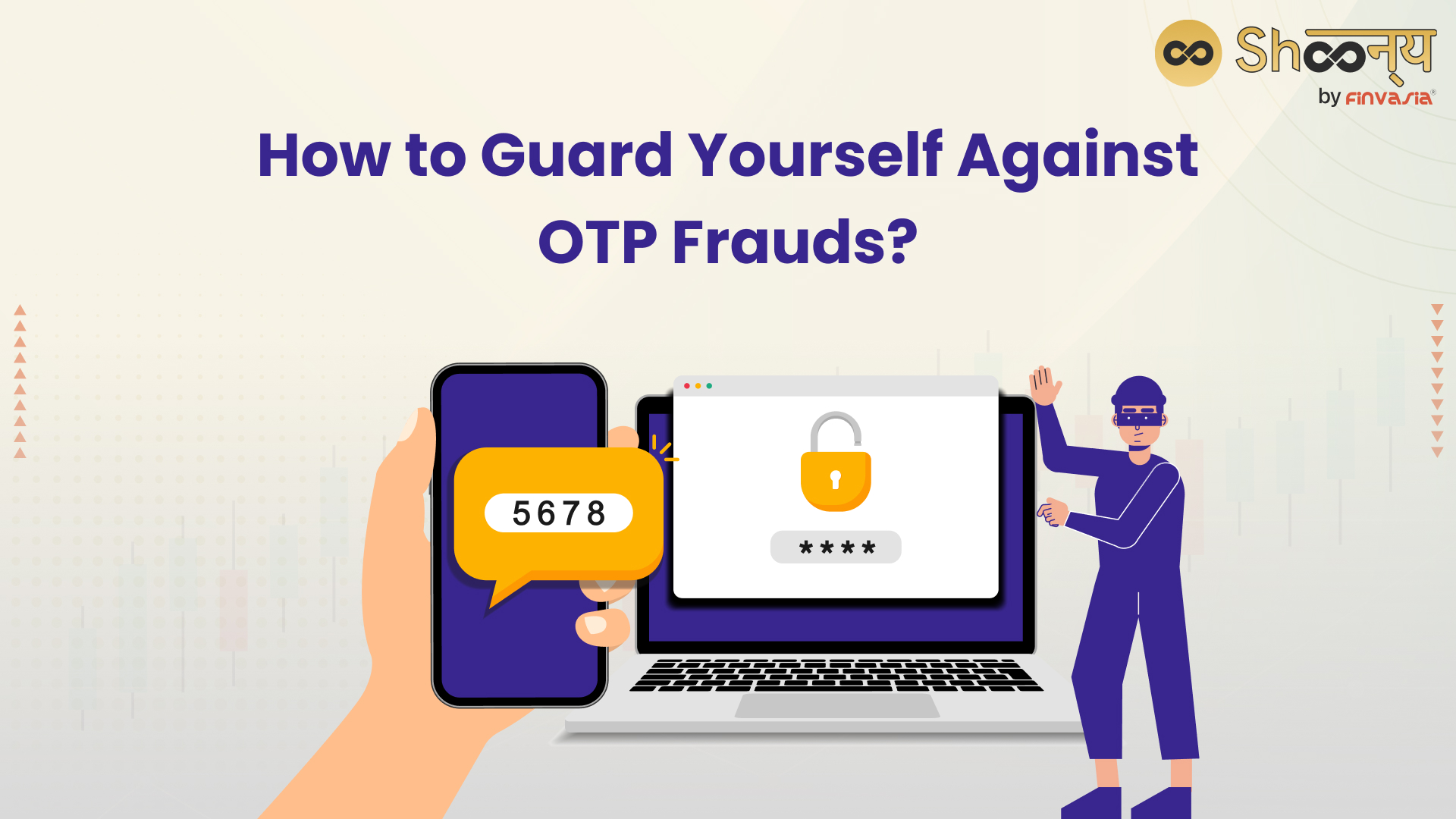In recent years, OTP (One-Time Password) fraud has surged as a significant threat within India’s digital ecosystem. From local tea stalls to luxury brands, Indians across the board prefer digital payments now. Cybercriminals employ diverse tactics to dupe individuals into divulging their OTP. The result? You lose your hard-earned money in microseconds. Here’s a comprehensive guide to protect yourself against he rising OTP frauds.
OTP Scam: Understanding the Threat
One Time Passwords (OTPs) are single-use, dynamic codes valid for a brief period. They add extra security by being usable for only a short time. This makes them more secure than static passwords.
The generation of OTPs involves complex algorithms, ensuring randomness and unpredictability. This provides a robust defence against unauthorised access.
Yet, these measures can fail if users aren’t careful.
OTP scams are sneaky plots created by scammers to steal people’s OTPs. These schemes often involve employing deceitful tactics. They may use phishing emails, counterfeit websites, or fraudulent phone calls.
How Does OTP Fraud Work?
OTP fraud typically begins by tricking a person into sharing their One-Time Password (OTP) with the fraudster.
What does he do?
He then uses it to gain unauthorised access to the victim’s financial or personal accounts. They can do OTP fraud through phishing emails, fake calls, or malware that intercepts OTPs sent via SMS.
Today, OTP frauds and interception of OTPs by malicious entities are increasingly common.
As per the recent report, RBI is planning for alternate ways to authenticate digital transactions.
Growing OTP Scams in India
In Dec 2023, a techie lost around ₹68 lakh in an OTP scam. This is just one story. Every day, we hear one of our friends or family members explaining such stories. Older people, who are new to this digital system of making payments, are more prone to OTP fraud.
According to a recent report from the Reserve Bank of India (RBI), fraud cases in the ‘cards and internet’ category surged to 12,069 cases (worth approximately Rs 630 crore) in the first half of FY24. This is up from 2,321 cases totaling Rs 87 crore in the same period last year.
The convenience of managing finances digitally also means we’re more vulnerable to digital attacks. As technology progresses, so do cybercriminals’ tactics, catching unsuspecting consumers off guard.
The nation’s increasing reliance on online banking, e-commerce, and digital payment systems has created fertile ground for cybercriminals.
They tend to exploit unsuspecting individuals.
The goal?
Using sophisticated techniques to target individuals across all demographic segments.
The easiest target is indeed the younger or the older generation
How to Avoid OTP Frauds
Understanding how OTPs and digital authentication tools work helps recognize and avoid intrusions. Adopt a no-sharing policy regarding OTPs and personal information.
This is important, especially in response to unsolicited requests you may receive via SMS, WhatsApp message or email.
OTP without a transaction initiation is suspicious.
You must actively monitor your account and report any anomalies to the authorities.
Update contact details with banks and institutions promptly to ensure receiving important alerts.
You may also want to know the Types of Fraud in Banks
How to Avoid OTP Fraud?
- Stay Vigilant
Be very careful when you receive unexpected requests for OTPs, especially through email, text messages, or phone calls. Legitimate organisations, such as banks, your trading platform, etc., never ask users for OTPs.
2. Verify Source
Before sharing any sensitive information, make sure to verify the legitimacy of the requester. Check the sender’s identity, website URLs, and contact details carefully to confirm they are genuine.
3. Guard Personal Information
Do not share personal or financial information, such as OTPs, passwords, or PINs, with anyone. This even applies to the fact that they are your acquaintances or family members. There have been incides of frauders duping people acting as their family members. Keep OTPs confidential and only disclose them when absolutely necessary.
4. Secure Communication Channels
Use secure communication channels for sensitive transactions, like banking or online shopping.
5. Update Security Software
Safeguard your devices, encompassing smartphones and computers, by routinely updating them with the latest security patches and antivirus software. Conduct periodic scans to detect malware or anomalous activities.
6. Educate Yourself
Stay updated about common phishing techniques and fraud schemes that are prevalent. Raise awareness among your family members about the dangers of sharing sensitive information online.
7. Report Suspicious Activities
Immediately report any suspicious activities or requests for OTPs to the relevant authorities. Taking quick action can prevent further harm and protect others from falling victim to similar scams.
Conclusion
The increasing sophistication of OTP scams is a stark reminder of the continuous battle against cybercrime. While OTPs offer a significant security advantage, their efficacy depends on our understanding and handling of them.
Maintain good digital hygiene and stay vigilant against increasingly sophisticated OTP scams. Understanding and handling OTPs properly can effectively protect digital transactions and personal information.
FAQs| OTP Fraud in India
Sharing your OTP can lead to unauthorized access to your accounts and potential financial loss.
Someone with your OTP can authenticate transactions or logins, posing as you.
No, it is not safe to share your OTP with anyone, as it compromises the security of your accounts.
OTP fraud can be prevented by never sharing your OTP, being cautious of phishing attempts, and regularly monitoring your accounts for any unauthorized activity.
______________________________________________________________________________________
Disclaimer: Investments in the securities market are subject to market risks; read all the related documents carefully before investing.

